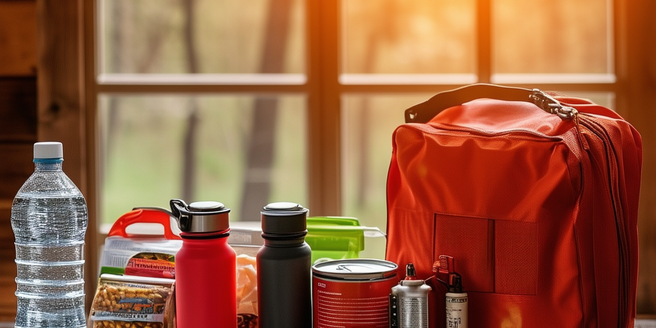
Importance of Having an Emergency Kit
An emergency kit is crucial for ensuring personal safety and preparedness in times of crisis. Having essential items ready allows you to respond effectively to unexpected situations. Emergencies, such as natural disasters or power outages, can occur without warning, leaving you vulnerable if you’re unprepared. A well-stocked emergency kit helps you maintain a sense of control and self-sufficiency, reducing panic and confusion. It includes vital supplies like food, water, first aid, and tools, which can be critical if professional help is delayed. Moreover, an emergency kit provides peace of mind, knowing you have taken proactive steps to safeguard yourself and your loved ones. Regularly updating and personalizing your kit ensures that it meets your specific needs, ultimately enhancing your resilience and ability to cope in emergencies.
Water and Food Supplies
Water and food are among the most vital elements to have in an emergency kit. During a crisis, access to clean water can be compromised, making it essential to have a sufficient supply on hand. Experts recommend storing at least one gallon of water per person per day for at least three days for drinking and sanitation. Additionally, stocking up on non-perishable food items ensures you have enough nutrition to get through disrupted times. Look for canned goods, dry foods, and ready-to-eat meals that require little or no preparation. It is also important to consider the dietary needs of each member of your household, including any pets, as you assemble your food supplies. Regularly check and rotate your stock to maintain freshness, ensuring your kit remains effective whenever you need it.
First Aid and Medical Needs
A comprehensive emergency kit must include provisions for first aid and medical needs. During an emergency, professional medical assistance may be unavailable, making it essential to have the necessary supplies to address minor injuries and health concerns. Basic items like bandages, antiseptic wipes, adhesive tape, and pain relievers can effectively manage common injuries. If you or your family members have specific health conditions, be sure to include necessary medications and instructions for use. A well-equipped first aid kit should also contain items like tweezers, scissors, and a thermometer for greater versatility. Moreover, including a basic first aid manual or guide can be immensely helpful in addressing injuries when expertise is unavailable. Regularly review and update the medical contents of your emergency kit to ensure that supplies are fresh and relevant.
Tools and Safety Gear
Equipping your emergency kit with the right tools and safety gear can significantly enhance your preparedness for various scenarios. Essential tools like a flashlight, batteries, multi-tool, and duct tape are indispensable for handling unexpected situations and making repairs. A flashlight is crucial for navigating in darkness, while extra batteries ensure it remains functional. A multi-tool offers versatility for tackling a variety of tasks, from opening cans to making quick repairs. Additionally, adding a whistle can be helpful for signaling for help when necessary. Safety gear, such as gloves and a dust mask, provide protection against unseen hazards, enabling you to work safely in challenging conditions. Investing in these tools and gear enhances your ability to respond quickly and effectively, ensuring safety and self-reliance during an emergency.
Communication Devices
In the event of an emergency, communication devices play a crucial role in keeping you connected and informed. However, conventional communication channels like phones and internet services may be disrupted, making it imperative to include alternative communication tools in your emergency kit. A battery-powered or hand-crank radio is essential for receiving updates and alerts from local authorities. These radios can keep you informed about weather conditions, evacuation orders, and recovery efforts. Additionally, consider including a solar charger to keep your essential devices powered throughout the emergency. Walkie-talkies can be invaluable for short-range communication among family members, enhancing coordination and safety. Ensuring you have multiple communication devices increases your ability to stay informed, make critical decisions, and remain connected with loved ones during challenging times.
Personal Items and Documents
Incorporating personal items and important documents into your emergency kit is essential for comfort and identity verification during a crisis. Ensure your kit contains copies of personal identification documents, such as passports, driver’s licenses, and birth certificates, securely stored in a waterproof container. These documents are vital for obtaining aid and proving identity should the need arise. Consider including personalized items like prescription eyeglasses, contact lenses, or other unique necessities tailored to your personal circumstances. Personal hygiene products, like soap, toothpaste, and sanitary supplies, contribute to maintaining cleanliness and health. Additionally, including some cash can be useful if electronic payment systems are unavailable. Regularly review your personal items and documents to ensure their relevance and accuracy, enhancing your ability to manage unexpected disruptions and recovery efforts.
